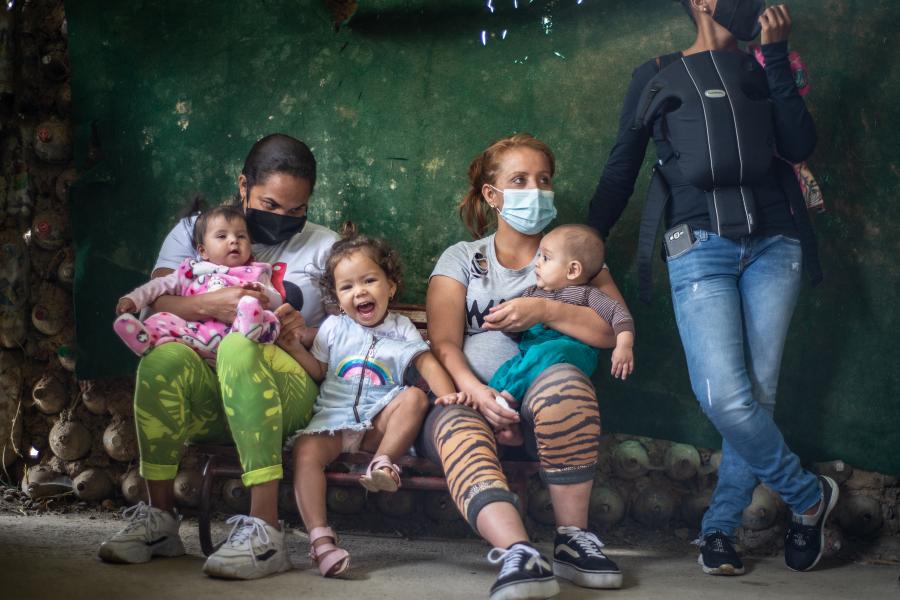2021 Year-end population figures
-
6 million* refugees and migrants from the Bolivarian Republic of Venezuela globally, of whom (83%) 4.99 million hosted in countries in Latin America and the Caribbean
-
Refugees: 199,000
-
Asylum seekers: 971,000
-
2.56 million residency or regular stay permits issued across the region
*This figure includes Venezuelan migrants, refugees, and asylum seekers reported through the Coordination Platform for Refugees and Migrants from Venezuela.
2021 situation overview
With the extension of COVID-19 border closures, refugees and migrants resorted to irregular crossings, often using smuggling networks and exposing themselves to heightened protection risks. With few specific protocols to allow access to territory during the pandemic, the available protection space was greatly reduced.
More than 30% of Venezuelans in the region did not have access to regular stay arrangements, resulting in limited access to formal labour markets and social safety nets. This left many exposed to exploitation and abuse, eviction and homelessness, and in some cases detention or deportation.
Brazil, Colombia, the Dominican Republic, Ecuador and Peru initiated different types of regularization processes to provide Venezuelans with documentation and improve their access to rights. In 2021, more than 500,000 Venezuelan applicants were approved for some form of regular stay, and more than 3 million Venezuelans abroad could potentially benefit from regularization exercises. Colombia has registered more than 1.8 million applicants for Temporary Protection Status. 1.2 million of them completed biometric registration, and over 300,000 were approved and received their documentation.
Chile incorporated a family reunification programme into its new immigration regulations and authorized the issuance of safe conduct for Venezuelans without documentation who qualified for family reunification or other exceptional humanitarian situations. Through the Government of Colombia’s “Children First” policy (“Primero la niñez”), over 70,000 children born to Venezuelan parents in Colombia received Colombian nationality, avoiding statelessness. Argentina passed a regulation facilitating access to temporary residence for Venezuelan children by waiving the requirement for the presentation of a valid identity document.
In Brazil and Mexico, over 68,000 people were relocated from regions where they had little prospect of economic integration to parts of the country where they were matched to available jobs. In Colombia, UNHCR promoted increased access to the labour market and financial services for Venezuelans who will receive Temporary Protection Status.
In the Bolivarian Republic of Venezuela, UNHCR continued to support the implementation of the Humanitarian Response Plan and led the protection cluster, as well as the cluster responsible for shelter, energy and core relief items. Over the course of 2021, 1.9 million people, including host community members, people on the move or at risk of moving, and spontaneous returnees, were directly or indirectly assisted in 71 prioritized communities, especially in border areas, including access to community centres and temporary shelters, health services, and food assistance for the most vulnerable. UNHCR also provided technical assistance on shelter management and coordination and stepped-up assistance in reception areas, temporary shelters and public health facilities, while also supporting public health measures.
Through its co-leading role in the R4V platform, UNHCR promoted a predictable and coordinated response to the challenges of increasing mixed and onward movements across the region. In the context of the Regional Refugee and Migrant Response Plan, collective inter-agency efforts provided assistance and support to 3.3 million people in 17 countries. The Quito Process remained the central forum for intergovernmental coordination among host countries. Under the pro tempore presidency of Peru, 13 governments participated in the Process, along with 34 other actors, including UN organizations, cooperating States and international financial institutions which support the Group of Friends of the Quito Process.
